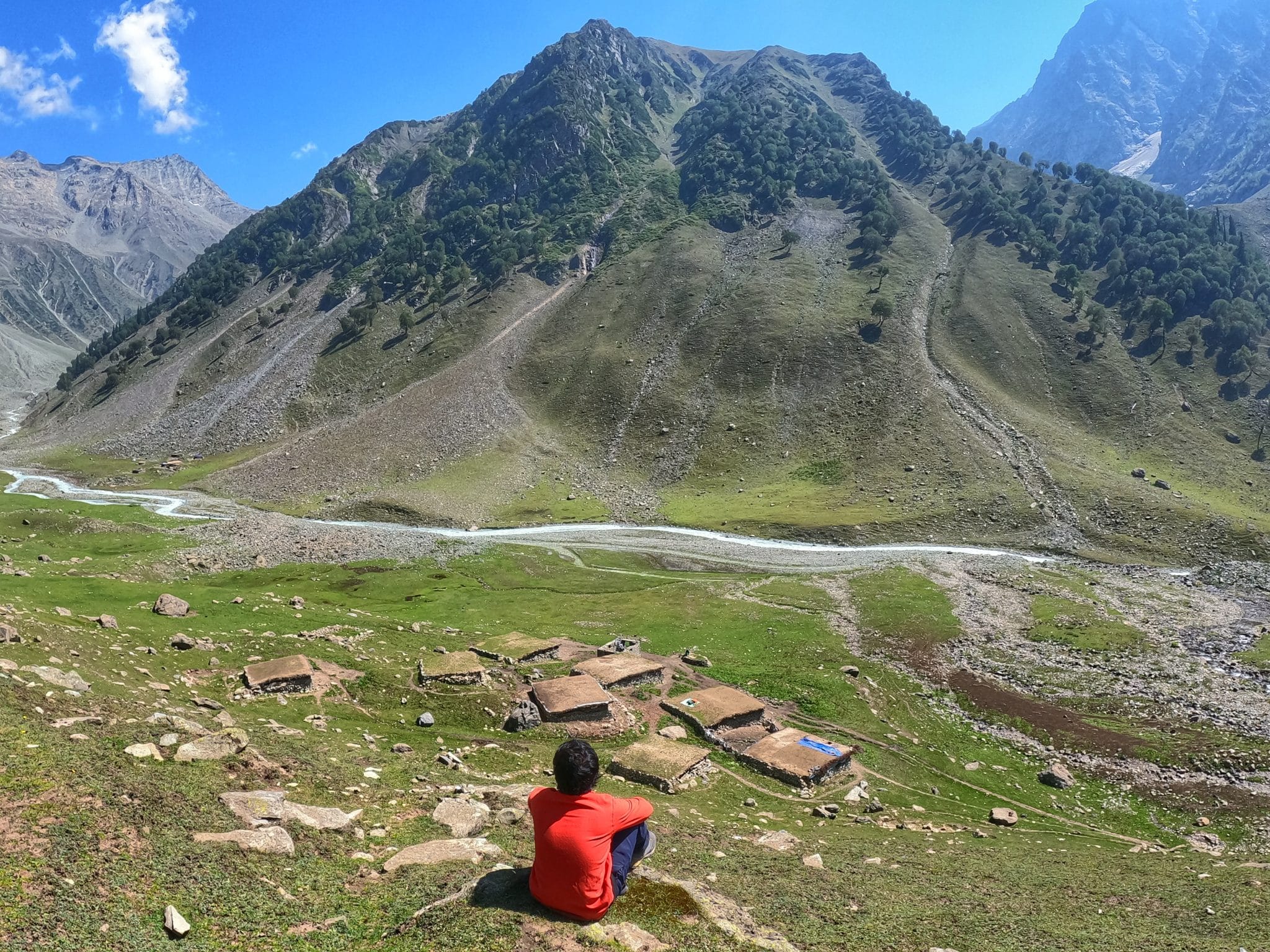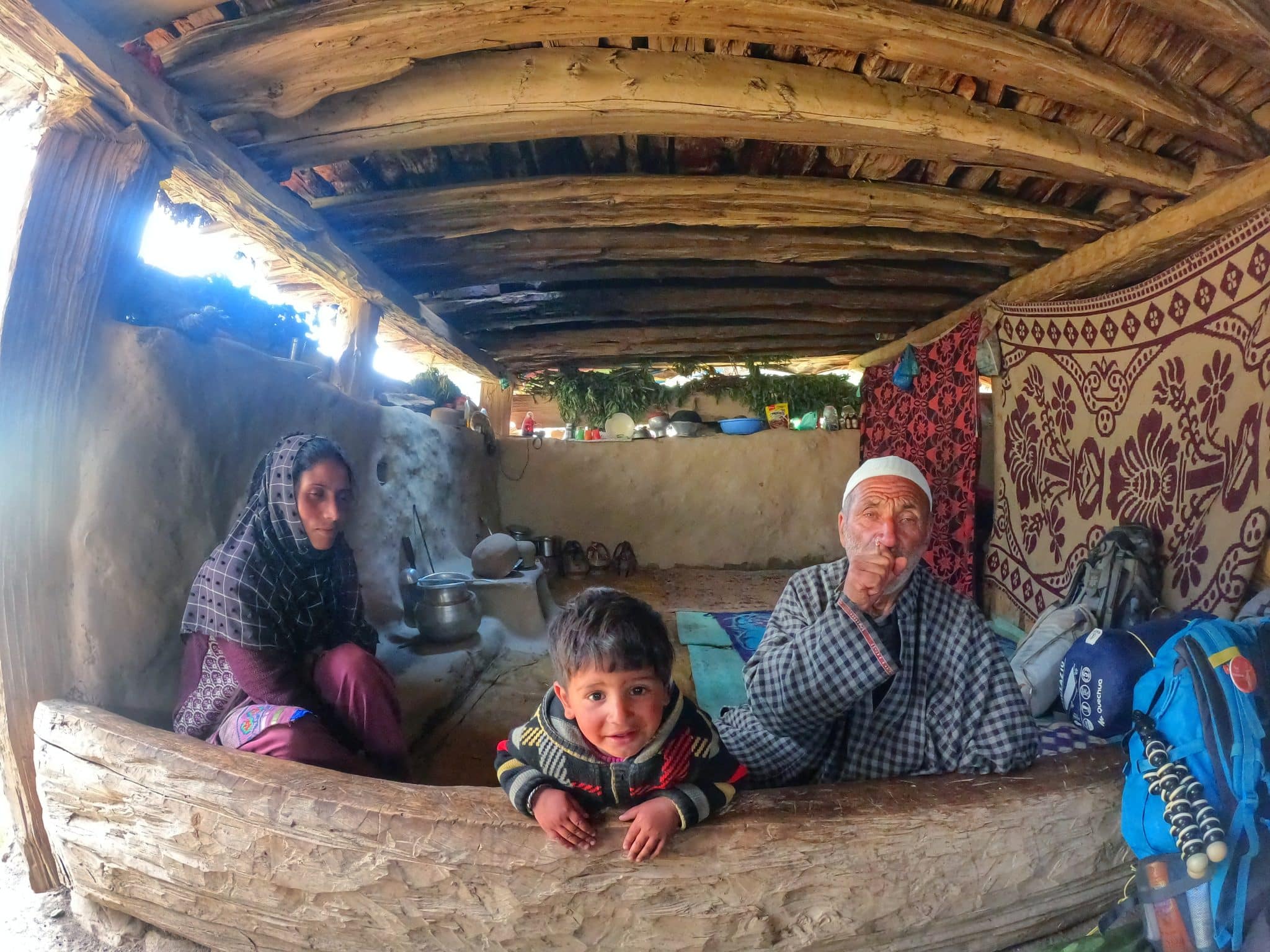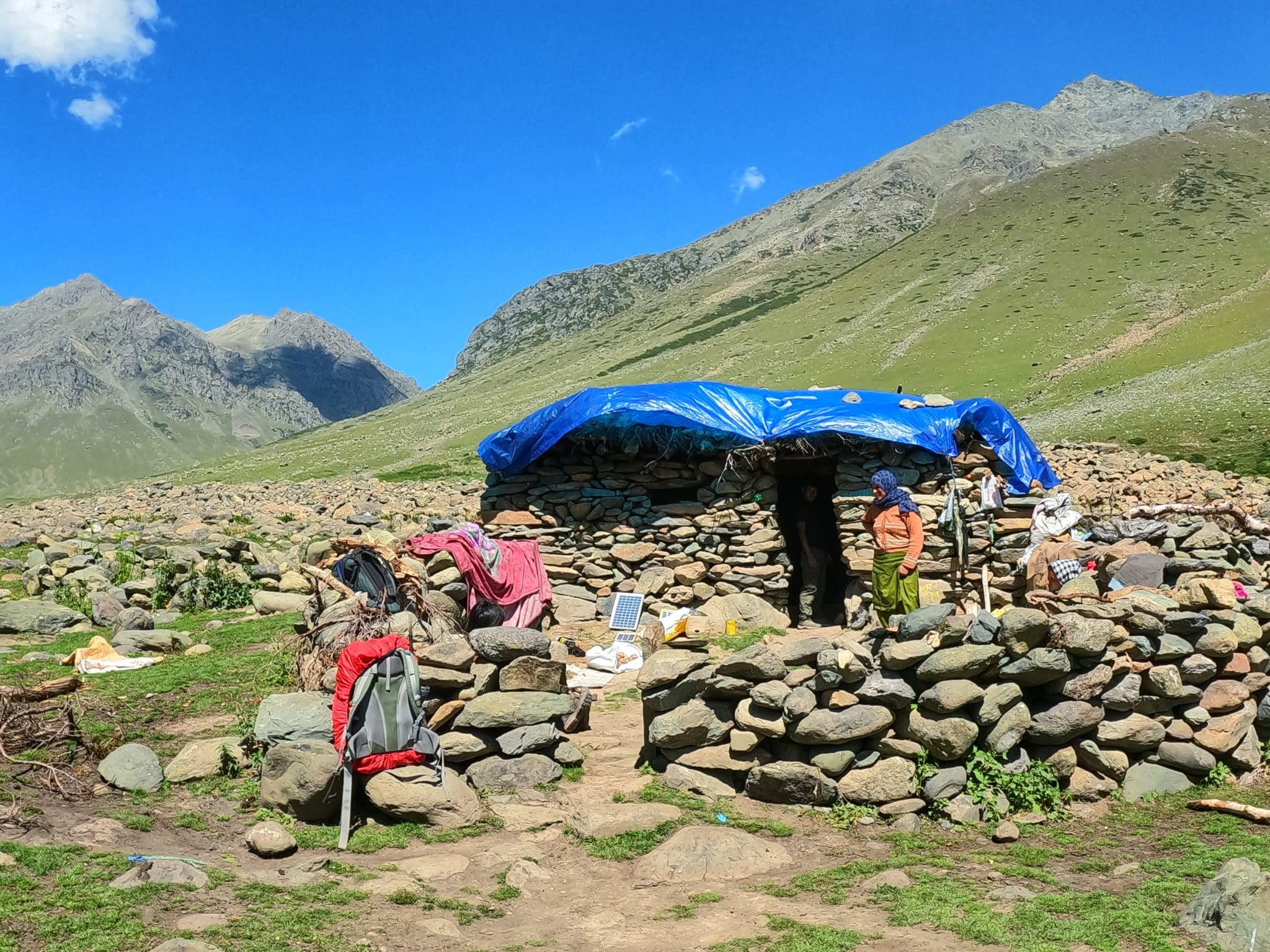Exploration treks are cathartic. For a detox, as we tread on the paths that haven’t been explored by many, it gives us satisfaction, experiences, brings us face to face with nature, and bumps us into people whose stories inspire us. During one such 4-days exploration trek in Kashmir, our leaders—Harsh, Shivam and Adith—met a nomadic community in the alpine: Chopan. This community is not just another community; they are the custodian of the mountains, caretakers of the cattle and know life-saving skills better than anyone else. They lead a life of simplicity and are aloof from the chaotic world for more than half of the year. On the exploration trek, our leaders got a chance to stay with them for a few days, and this experience added a beautiful chapter to their lives.

To nullify the inner ticklings to find a place of least human disturbance, Shivam, Jolly and Adith set up their plan starting from Srinagar. They meet a shopkeeper who gives them directions for lesser-visited two lakes: Royalsar and Basmaisar. The plan is to take all types of equipment, medicines, food, and clothes and start the trek from Aru Valley.
To reach the lakes, they diverge from Lidderwat to reach Satlanjan. Upon asking the locals, they hear the name Chopan for the first time. “You walk on the same path, and you will find ‘Chopan’. They will guide you to the lakes,” locals on the trail advised.
Note: In boxes, excerpts from a chat with Jolly.
“I thought they use ‘Chopan’ word to refer a shop.”
Chopan community lives some 8 km from the regular route. Although Chopan tribals are found in many parts of Kashmir and Himachal Pradesh, not many people know about them. Their primary source of income is by taking care of others’ cattle, taking them to grassy meadows, grazing them and bringing them back safely. This process lasts for about six months, starting from March. After September, as mountains cover-up in the snow, they gradually come down.
In the mountains, there are many houses built. Chopan community works such that these houses do not belong to anyone. Whoever finds a home empty can repair and use it.
“When we saw these houses, we started to pitch our tents, but these people asked us to stay with them for three days. The plan was to stay at a place, explore during the day and come back. Now, our stay was set.”

Chopan people do not have much choice in food. They eat the same food almost every day. Their day starts with mix-curry with rice, slumber with noon tea and chapati, and ends with similar mix-curry. Most families have five members comprising dogs, 20 self-owned cattle, and 700-800 cattle that earn them money. They don’t mind discussing religion with you, read books, get bewildered by your way of life and are open for experiences.
“The family that sheltered us had one aunty, one 70-year-old uncle, a two-year-old child and others. They looked after the cattle for the whole day, took them to lush grasslands for feeding and reunited with family in the evening. Every day, like a ritual, they count all cattle. More than three people are involved in this job so that no count is missed. Then to stay safe from wild animals like bears, two family members sleep outside the house; dogs bark as they spot the animal and then, the members use torches and other methods to drive the animal away.”

They are backward socially and economically. To date, no effort successfully gave them a respectable place in society. Their name is not listed in the Scheduled Tribes list. They don’t have sophisticated homes to live in. Years and years slip as a bane for children’s education.
Chopans’ contribution to the country cannot be overlooked. They are the well-wishers of the mountains, live sustainably, know essential herbs and are quick in their actions. They deserve respect, care and a great future. We hope this article reaches the right hands and they can take the message ahead.
“Sharing life, food, talks over cups of tea, sleeping carelessly in the company of Chopans, and learning a few techniques during the daytime, we don’t know how these days of goodness passed, and we had to move. This trip will always remain in my heart, for this was not just the exploration of India’s interior parts, but also knowing about a tribe. Chopans are fundamentally similar to us, but live a life a world apart. I am glad I got a chance to witness and learn so much in those two days. They sought nothing from us as we left the house. We gave them money for the hospitality and ration, which they refused. Nevertheless, like learned citizens, we handed some money in the child’s hands and moved from there.”

Luckily, on the way, our leaders’ happiness broke all bounds as they got to spend some days with them. During explorations, it is bliss to meet and talk to locals. Living aloof from the outer world’s squalor, they teach us many things. Like this journey, we wish many finding ahead. Have you ever come face to face with such a mind-blowing story? Quickly, write it in the comments.
Disclaimer – Our leaders have been on previous exploration trips and have done mountaineering courses. They know the nitty-gritty of the wild and are aware of how to retrace the path if lost. Plan the Unplanned, in no way, suggests or motivates you to follow on these lines if you are not a professional.

Hey Gazy,
Exactly. As we stumbled upon this issue, we thought how could we be of any help. Turns out, it is difficult as of now due to various factors, like you mentioned. If there is a particular group working actively towards this, let us know. We will try to get in touch with them.
Being close observer of the same community, it seems you were speaking my heart out… Thankyou for such a lively article.
One more thing I would like to add that from last three decades we were trying to persue Government that CHOPANS deserve SCHEDULE TRIBE STATUS like rest of their sister communities across country. However, it seems that due to their nomadic way of life, and socio-economic and educational backwardness….they aren’t able to brought up their case in properly infront of respective ministry.
Being close observer of the same community, it seems you were speak my heart out… Thankyou for such a lively article.
One more thing I would like add that from last three decades we are trying to persue Government that why don’t CHOPANS being given ST status, like rest of the sister communities across country.
Mam,
We are still in trouble no body takes our matter serious…#ST plz highlight our issue
Very good observation done by Supriya sahu madam.. Chopan community of Kashmir is still out of Schedule tribe list of India which is their birth right.
Sounds quirky. But, I would love to try this sometime.
Very nice article.
I once had an encounter with tribes in koraput if Chattisgarh when I was small. They eat red ants for better eyesight. They even sell those red ants and their eggs in the market.
Wow ! Looks like a really amazing experience.